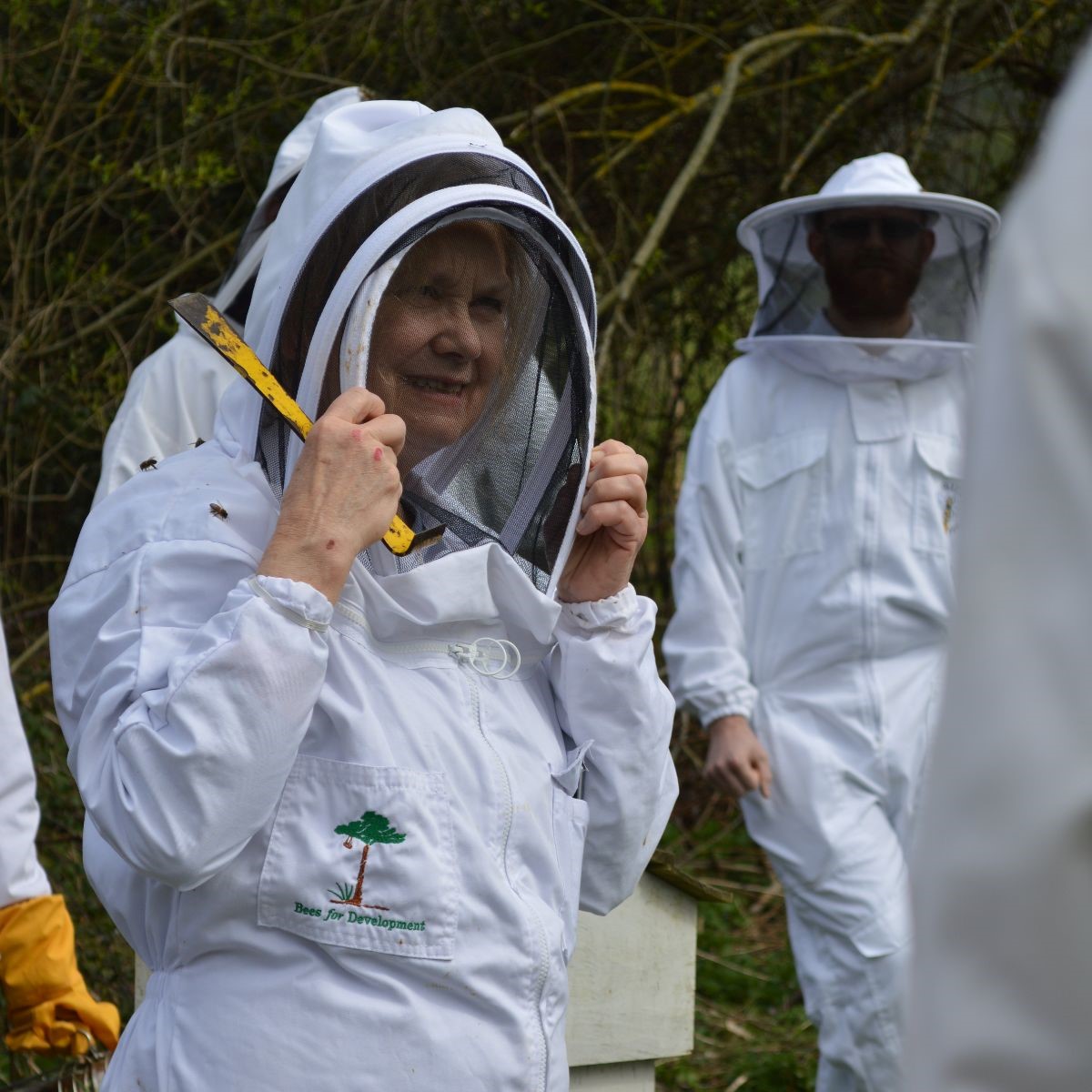Bees for Development is the global charity which makes life better with bees. They promote sustainable beekeeping to combat poverty, build resilient livelihoods and benefit biodiversity.

Monthly Update from Bees For Development:
Now that we have started the year 2023, Bees for Development will shortly be celebrating their 30th year of action! They hope to begin the year with huge progress in the areas where they work - building the capacity of their teams to achieve more work for people, bees and biodiversity.
Here is their latest statement from Dr Nicola Bradbear MBE:
"Bees for Development is thirty years old this year and we are celebrating! We are reflecting too, on what we have achieved and what differences we have made, for bees, and for the people we have helped to care for them. When we set out (and there was just Helen and I in those days), we knew that beekeeping worked very well as a way for rural people to create food for their family and community, and income too. Bees for Development therefore set to work in 1993 with dual aims: to reduce poverty, and to increase biodiversity.
Back in those days, some folk said we should not use the word biodiversity "because nobody knows what it means"! Times moved on, biodiversity reached the political agenda, and not just bees - but all insect pollinators have gained public awareness, with the climate crisis and the biodiversity crisis no longer treated as separate issues. Beekeeping remains an outstanding way for people to create income while doing their bit to restore their surrounding habitat, and we are making every effort to ensure it happens even more over the next 30 years!"

The Bees For Development Resource Centre is home to a vast range of bee-related information, much of it unique to their website site. The purpose of the Resource Centre is to empower beekeepers and beekeeper trainers to develop beekeeping to strengthen sustainable livelihoods worldwide. They have over 300 registered users from 128 countries, cumulatively accessing over 48,000 resources per year.